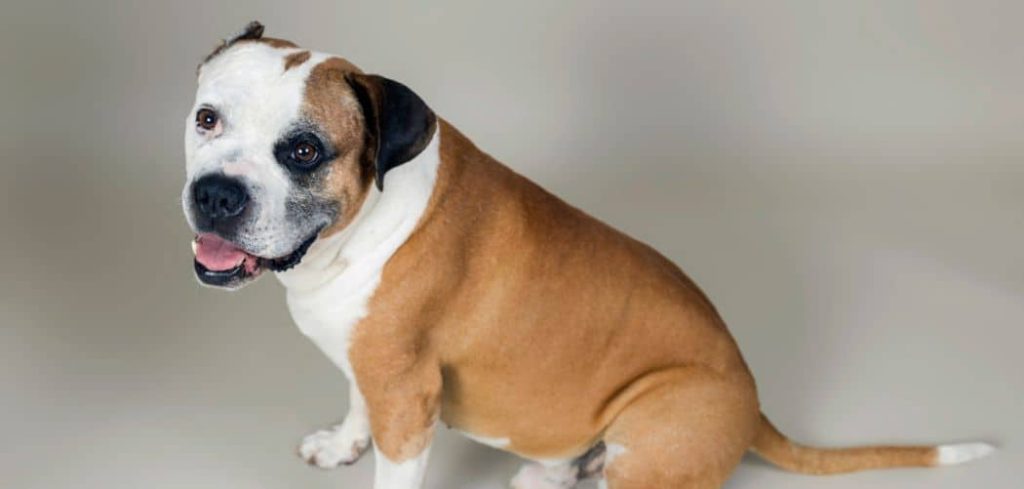It can be alarming to see your dog constantly licking the floor, especially when it becomes a compulsive behavior. While some floor-licking is normal, excessive and repeated licking may signal underlying health or behavioral issues that need attention.
We outline the common causes of a dog excessively licking the floor, what you can do at home, and when to seek veterinary help.
Table of Contents
Dog Excessively Licking Floor — Why It Happens
Excessive floor licking by dogs can be caused by gastrointestinal discomfort, neurological issues, or even anxiety. Sometimes dogs lick the floor to clean up food remnants, but if there’s no food and the behavior is persistent, it may indicate nausea, obsessive-compulsive tendencies, or cognitive dysfunction.
Dogs with dental problems or mouth pain may also resort to floor licking. In rarer cases, it can signal seizures or a reaction to toxins.
The context, frequency, and intensity of the behavior are important for identifying the root cause.

Dog Excessively Licking Floor: Common Causes
Nausea or Gastrointestinal Discomfort
Dogs experiencing nausea may lick the floor obsessively as a self-soothing mechanism.
This may be triggered by dietary indiscretion, gastritis, or a more serious condition like pancreatitis.
Owners might also notice drooling, lip-smacking, grass eating, or vomiting accompanying the floor licking.
This behavior is especially concerning if your dog refuses food or shows signs of abdominal discomfort.
Related: Dog licking excessively (Here’s why)
Obsessive-Compulsive Disorder (OCD)
Compulsive floor licking may be part of an anxiety-driven behavioral disorder.
Dogs with OCD might also exhibit pacing, spinning, or tail chasing.
These behaviors often start gradually and become more frequent, especially in high-stress environments or when dogs are left alone.
It can interfere with quality of life and may even lead to physical harm if left untreated.
Canine Cognitive Dysfunction (Dog Dementia)
Older dogs that begin licking the floor may be exhibiting early signs of cognitive decline.
This form of dementia affects memory, awareness, and behaviors, leading to repetitive and seemingly purposeless actions.
Owners may also see confusion, disrupted sleep patterns, or house soiling.
Floor licking in this context is often chronic and accompanied by other signs of disorientation.
Oral Pain or Dental Disease
Pain in the mouth can lead dogs to engage in strange licking behaviors, including floor licking.
Conditions like gingivitis, infected teeth, or foreign bodies stuck in the mouth can cause discomfort.
In an attempt to relieve pain or dislodge something, dogs may lick floors or nearby surfaces.
You might also observe bad breath, pawing at the face, or reluctance to eat hard food.
Focal Seizures or Neurological Issues
In some cases, excessive licking is a sign of neurological dysfunction, such as focal seizures.
Focal seizures can manifest as repetitive, localized movements — including licking motions — and may last only seconds.
These events can be mistaken for odd habits, but they typically follow a distinct, repeated pattern.
Other neurological signs may include uncoordinated movement, staring spells, or sudden collapse.
Exposure to Residual Toxins or Cleaners
If the floor was recently cleaned with harsh chemicals, your dog may be reacting to the taste or smell.
Ingesting cleaning residues by licking can be dangerous and lead to toxicity.
Signs might include drooling, vomiting, or trembling shortly after exposure.
Even natural cleaners can pose risks if they contain essential oils or vinegar in high concentrations.
What to Do If Your Dog Is Excessively Licking the Floor
Start by closely observing the context in which your dog licks the floor. Does it happen after eating? When anxious? Is it constant or only occasional?
Clean the floor thoroughly using pet-safe cleaners to eliminate any enticing residues that may be attracting your dog.
Try to distract your dog with toys, walks, or puzzle feeders. This can help reduce compulsive tendencies and redirect attention.
Ensure your dog is eating a well-balanced, appropriate diet to rule out nutritional causes of nausea or discomfort.
If your dog is a senior or has known anxiety, speak with your vet about calming supplements or behavior therapy.
When to Call or Visit Your Vet
If the floor licking behavior is persistent and unexplained, it’s time to seek veterinary advice.
Call your vet if your dog is also vomiting, drooling excessively, or refusing food.
Get help immediately if you suspect your dog licked chemical cleaners or toxic substances.
Any signs of neurological issues, such as disorientation, unresponsiveness, or odd repetitive movements, also require a vet visit.
If your senior dog suddenly starts licking the floor and seems confused or anxious, cognitive dysfunction could be at play.
Even if the behavior seems harmless, it’s best to rule out serious underlying conditions early.
Read more: Dog Excessively Licking Nose (Is it just nausea or something more?)
Key Takeaway
Excessive floor licking in dogs can stem from nausea, anxiety, neurological issues, or even exposure to harmful chemicals.
While some occasional licking is normal, persistent behavior may be a sign of an underlying problem.
Pet-safe cleaning, behavioral redirection, and observation are good first steps.
But if your dog continues licking the floor or shows other concerning symptoms, consult your vet.
Trust your instincts — unusual behaviors often signal your dog needs help, and early intervention can make all the difference.
